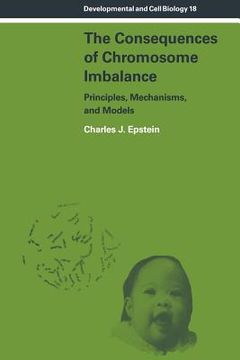Share
The Consequences of Chromosome Imbalance: Principles, Mechanisms, and Models (Developmental and Cell Biology Series) (in English)
Charles J. Epstein
(Author)
·
Cambridge University Press
· Paperback
The Consequences of Chromosome Imbalance: Principles, Mechanisms, and Models (Developmental and Cell Biology Series) (in English) - Epstein, Charles J.
$ 64.41
$ 71.99
You save: $ 7.58
Choose the list to add your product or create one New List
✓ Product added successfully to the Wishlist.
Go to My WishlistsIt will be shipped from our warehouse between
Monday, June 17 and
Tuesday, June 18.
You will receive it anywhere in United States between 1 and 3 business days after shipment.
Synopsis "The Consequences of Chromosome Imbalance: Principles, Mechanisms, and Models (Developmental and Cell Biology Series) (in English)"
This book considers in detail the mechanisms of a major human problem. Chromosome imbalance affects all stages of life in ways ranging from spontaneous abortion and retardation to behavioural problems and malignancy. Charles J. Epstein concerns himself with how and why a particular chromosome imbalance produces a specific phenotype. His fundamental goal is to connect chromosome aberrations with functional abnormalities in terms of gene expression, developmental and cell biology, and metabolism. Through his examination of this relationship, we learn more about normal development and function. The book begins with an exploration of several human autosomal aneuploid phenotypes, with particular emphasis on the relationship between genotype and phenotype. In the next part, broad theoretical considerations of the mechanisms which generate these phenotypes are examined with reference to studies on man and other organisms such as bacteria and mice. Experimental approaches to study the effects of aneuploidy are presented next with special attention paid to the development of model systems for studying human aneuploidy.
- 0% (0)
- 0% (0)
- 0% (0)
- 0% (0)
- 0% (0)
All books in our catalog are Original.
The book is written in English.
The binding of this edition is Paperback.
✓ Producto agregado correctamente al carro, Ir a Pagar.

